- Home
- slideshows
- miscellaneous
- The US and Russia are both throwing out a 31-year-old Cold War nuclear truce because neither country believes the other is keeping their promise
The US and Russia are both throwing out a 31-year-old Cold War nuclear truce because neither country believes the other is keeping their promise
The Intermediate-Range Nuclear Forces Treaty was the result of years of negotiation between the US and Russia during the Cold War. US President Richard Nixon and Soviet Union General Secretary Mikhail Gorbachev spent years drafting the plan, which aimed to eliminate all land-based missiles that travel anywhere from 300 miles to over 3,400 miles.

The two leaders finally put pen to paper on December 8, 1987 in the White House.
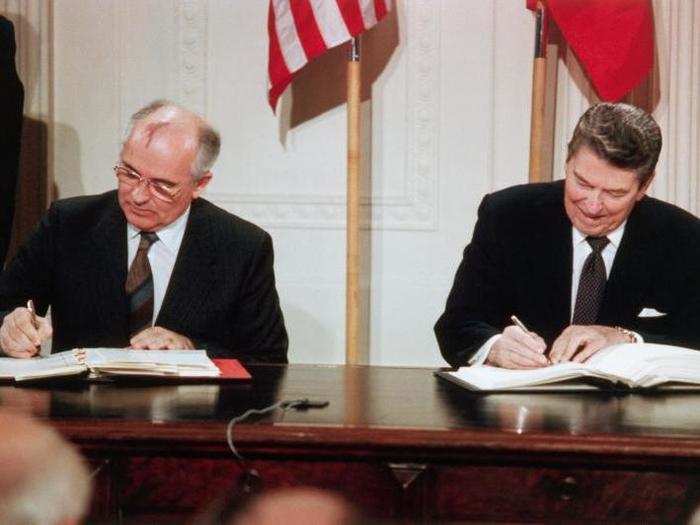
By summer 1991, just two and a half years later, the two sides had destroyed some 2,700 missiles.
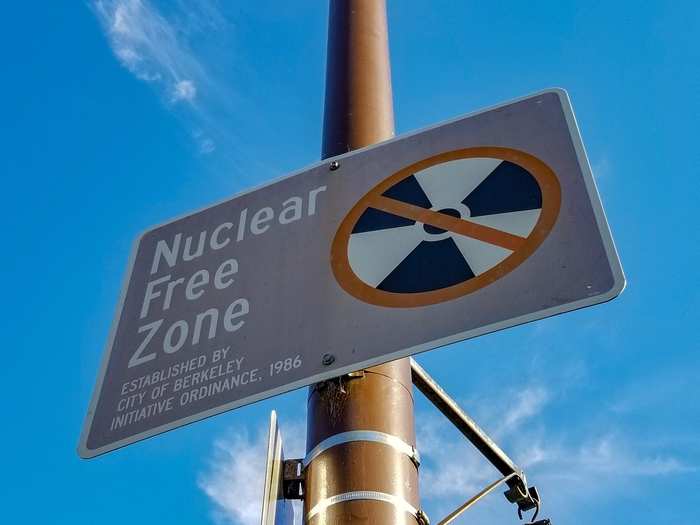
Source: Brookings Institution
When the treaty was signed by President Ronald Reagan and the Soviet Union’s General Secretary Mikhail Gorbachev it was meant to stand forever, in an “unlimited duration.”
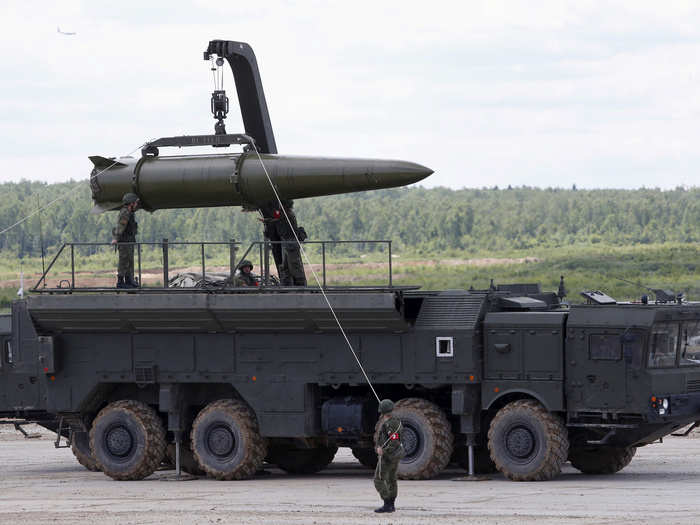
Source: US State Department
But as far back as 2014, the US questioned whether Russia was really keeping up its end of the deal.
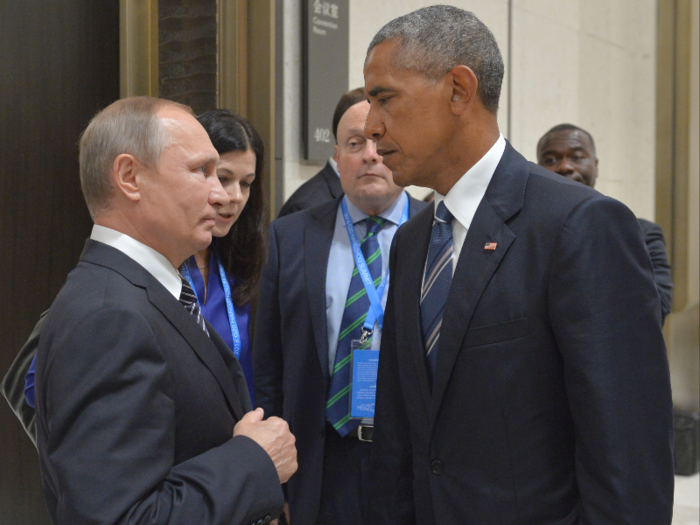
In particular, the US has been worried about Russia's Novator 9M729 (SSC-8) missile with a nuclear warhead, “which US intelligence believes has been deployed to hold most of Europe at risk” Business Insider’s Ryan Pickrell recently reported.
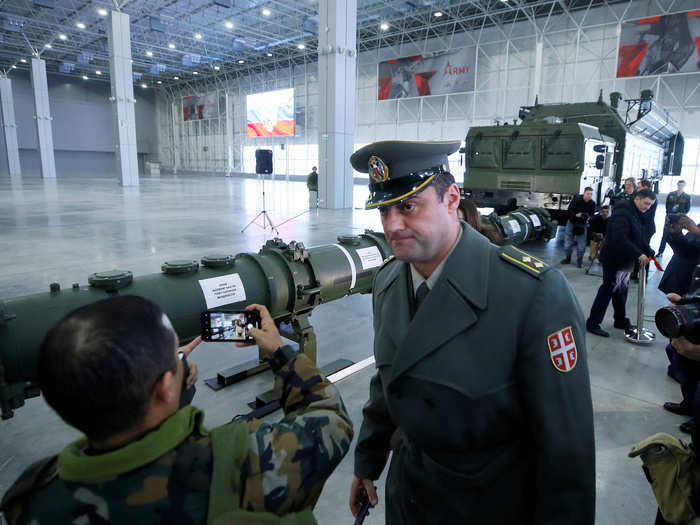
Source: Business Insider
Russia is also not convinced the US is holding up its end of the bargain. Deputy Foreign Minister Sergey Ryabkov has said the US is violating the pact with missiles in Poland and Romania. And he’s worried there could be more to come. "We are assuming the worst case scenario in our military planning." Ryabkov said last year. "We can't ignore the potential deployment of new American missiles on territory from where they will be a threat to Russia and its allies," On Saturday, Putin gave the go-ahead for Russia to start developing new missiles, but added that he’ll only actually use them if the US does so too.
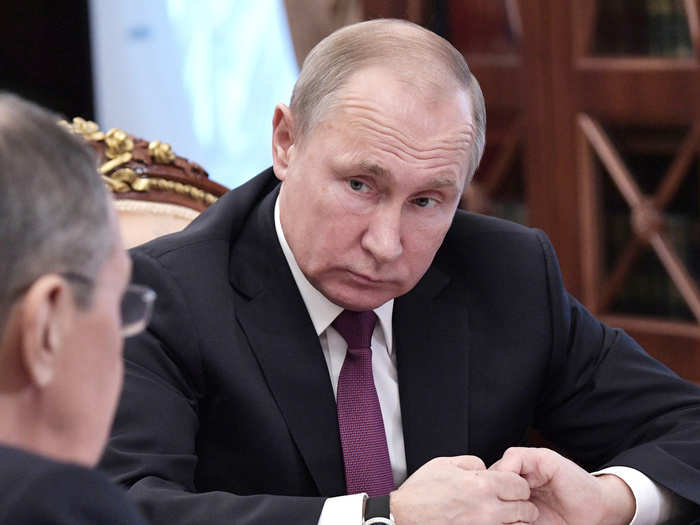
Source: Business Insider
Russia is not the only growing nuclear concern for the US, though.
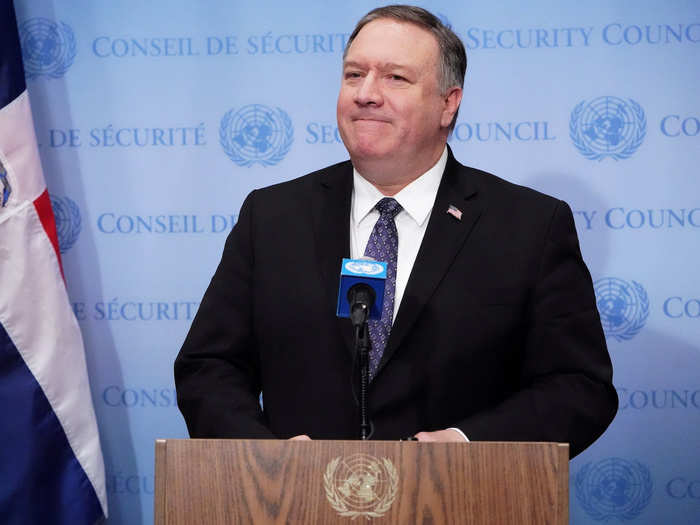
China is "on the verge of fielding some of the most modern weapon systems in the world," a US defense intelligence assessment read in January. Chinese media has also been showing off a lot of weapons recently.

Source: Business Insider
China isn't bound by the INF land-based missile ban at all. "[China] has been able to make significant progress in the area of land-based offensive missile capabilities while simultaneously building up the air and sea components," Collin Koh, a maritime security specialist at Nanyang Technological University in Singapore recently told the South China Morning Post.
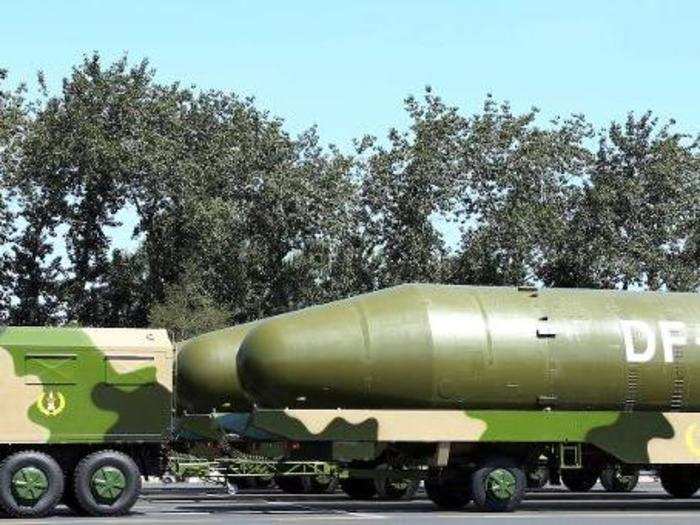
Source: South China Morning Post
Other nuclear experts have also suggested that getting rid of the agreement might give the US a needed edge in any future conflict with China. "The US currently has the ability to strike targets in China through air strikes and sea-based missile systems," Adam Ni, a researcher on Chinese foreign and security policy at the Australian National University said. "The deployment of short or intermediate ground-based missiles to, say, Japan would add to US capabilities in the region and erode the Chinese advantage, which has been built over decades."
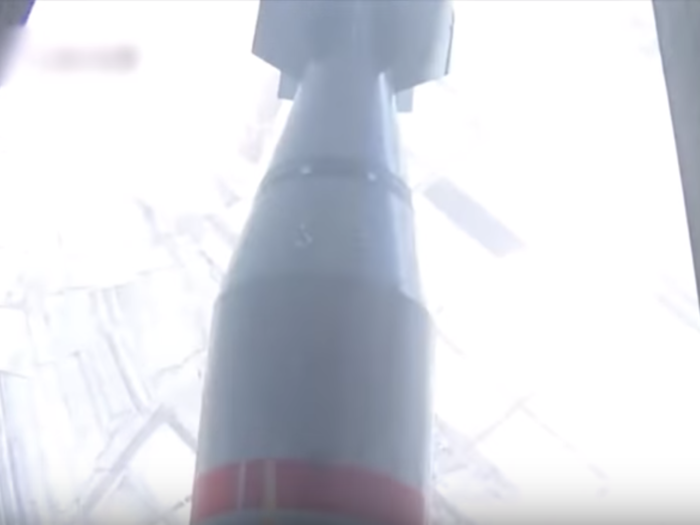
Source: South China Morning Post
Still, the crumbling of the deal is a major concern for Europeans. The US could theoretically set more nuclear weapons up there, now that the land-based ban doesn't apply. German Chancellor Angela Merkel has urged both sides to keep talking. "It is clear to us that Russia has violated this treaty," she said. "The important thing is to keep the window for dialogue open."
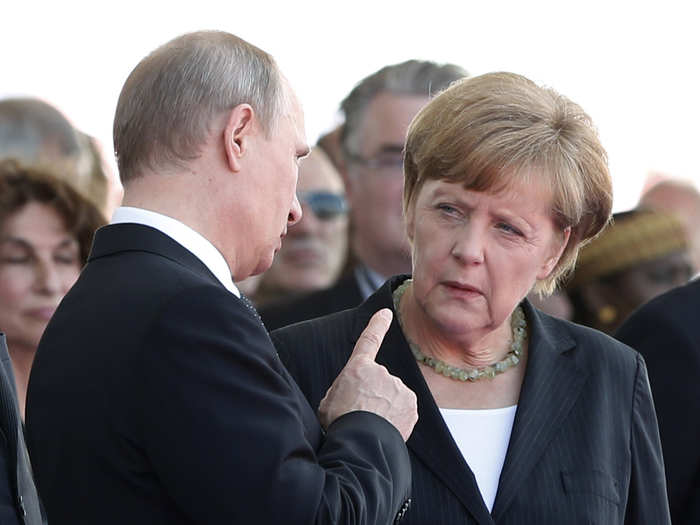
Source: Reuters
Likewise, Senator Edward Markey (D-Mass) who deals with nuclear issues on the US Senate Foreign Relations Committee told The New York Times that the Trump Administration’s decision was "a tragedy that makes the world less safe." "President Trump and his war cabinet have yet again decided that America should go it alone, this time, by paving the way for a dangerous arms race," he said.
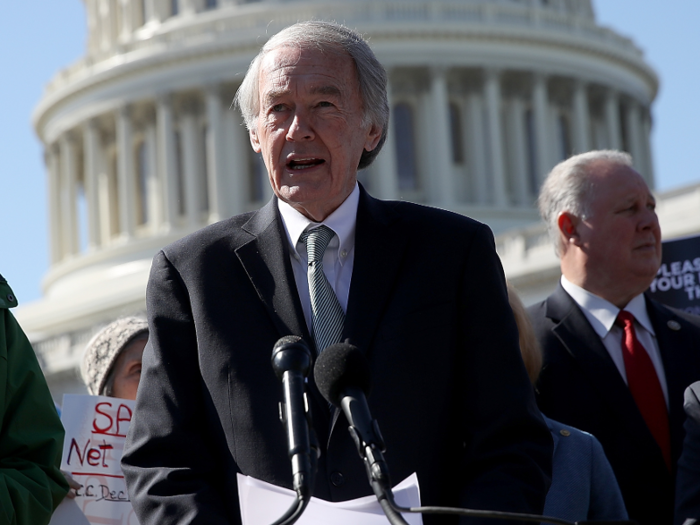
Source: The New York Times
Original INF deal-signer Mikhail Gorbachev said the idea to back the US out of the treaty was "not the work of a great mind," a clear dig at President Trump, who announced his intention to withdraw from the INF in October.
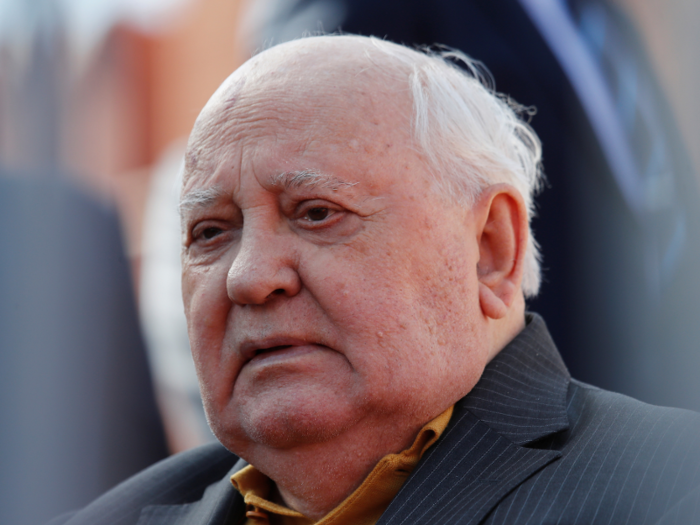
Source: CNBC
The Trump Administration has recently started work on its own next-generation nuclear weapon: the W76-2. It can be launched from a submarine.
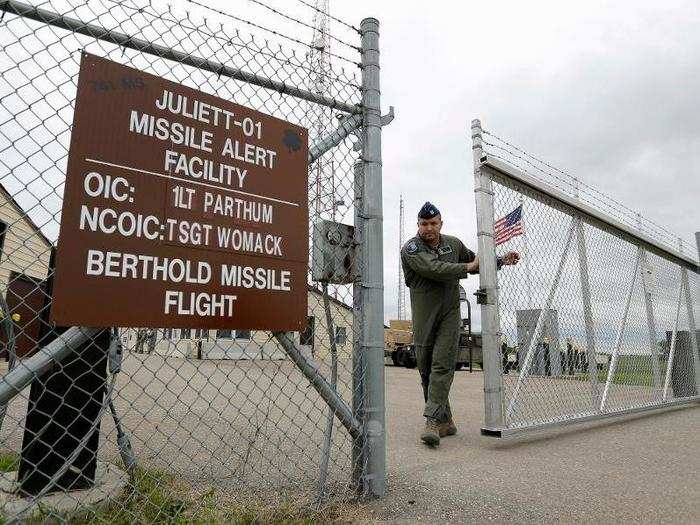
Source: NPR
Popular Right Now
Advertisement